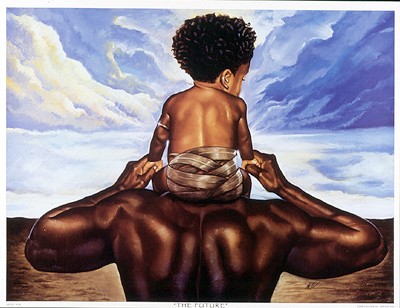Happy Fatherless Day.
In the early 1960s, a psychologist named Marvin Eisenstadt started a project interviewing “creatives”- innovators and artists and entrepreneurs- looking for patterns and trends. As he was analyzing the responses, he noticed an odd fact. A surprising number had lost a parent in childhood.
In the 1950s, while studying a sample of famous biologists, the science historian Anne Roe had remarked in passing on how many had at least one parent who died while they were young. The same observation was made a few years later in an informal survey of famous poets and writers like Keats, Wordworth, Coleridge, Swift, Edward Gibbon and Thackeray. More than half, it turned out, had lost a father or mother by the age of fifteen.
The psychologist Eisenstadt then embarked on a more ambitious project to find the link between childhood bereavement and career achievement. He made a list of every person whose life merited more than one column in the Encyclopedia Britannica and the Encyclopedia Americana, 699 people made this list. It took him 10 years to systematically track down biographical information for everyone on the list. Of the 573 eminent people for whom Eisenstadt could find reliable biographical information, a quarter had lost at least one parent before the age of ten. By the age of fifteen, 34.5 percent had had at least one parent die, and by the age of 20, 45 percent.
Historian Lucille Iremonger set out to write a history of England’s prime ministers. Her focus being between the 19th century and the start of the 2nd world war; what sort background and qualities predicted the kind of person capable of rising to the top of British politics at a time when it was the most powerful country in the world? She was sidetracked- 67 percent of the prime ministers in her sample lost a parent before the age of sixteen. “It occurred so frequently that I began to wonder whether it was not of more than passing significance”, she wrote.
Twelve of the first forty US presidents- beginning with George Washington and going all the way to Barack Obama- lost their fathers while they were young.
This is not in favor of orphan hood and deprivation but the existence of these eminent orphans does suggest that in certain circumstances a virtue can be made of necessity.
Psychologist Dean Simonton, is quoted saying that geniuses have a perverse tendency of growing up in adverse conditions.
Losing a parent however is the most devastating thing that can happen to a child. The psychiatrist Felix Brown has found that prisoners are somewhere between two to three times more likely to have lost a parent in childhood than is the population as a whole.
What happens when a child’s worst fear- losing a parent- is realized and they discover they are still standing? Do they not gain a self confidence that is the very mother and father of courage?
A New York psychiatrist Peter Mezan writes; the fast of having endured and survived such trauma has a liberating effect, these are people who are able to break the frame of the known world – what’s believed, what’s assumed, what’s common sense, what’s familiar, what everyone else takes for granted…. They are not confined to a frame. They have the ability to step outside it, because I think the usual frame of childhood didn’t exist for them. It was shattered.
The devastating childhood endured by losing a parent isn’t something I would wish on any child and no child should ever have to endure that. The question though is whether as a society we need people who have emerged from some kind of trauma- and the answer is that we plainly do. This is not a pleasant fact to contemplate. There are times and places when all of us depend on people who have been hardened by their experiences, who have the courage to think the unthinkable.
“It is, or it is not, according to the nature of men, an advantage to be orphaned at an early age”- Thomas De Quincey
As referenced from Malcolm Gladwell’s David and Goliath; chapter 5 ‘The Theory of Desirable Difficulty’



























Comment:
you preach without a mic girl with such a perfect blend of literature and humour. I have read all your articles but this one caught my attention most. Go Girl….Am following.
Thank you Marie 🙂 Glad you’re listening to my sermons, lol.